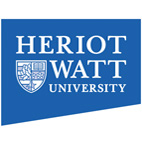
KPT/JPS (PA4095) 12/18
Modern society needs high-quality Mechanical Engineering graduates for their professional mechanical engineering skills and expertise. Heriot-Watt University is proud that our graduates are constantly in demand for these skills.
Mechanical Engineers play key roles in all industrial sectors ranging from aerospace, oil and gas, through food and transport to manufacturing, chemical and entertainment industries. Mechanical Engineering offers an exciting environment where many skills are brought together to create innovative products and the infrastructure and technology for manufacture.
This Bachelor degree aims to produce graduate Engineers who are able to meet society’s needs by the creation of products or processes that benefit the individual or economy. Many of the courses contextualise mechanical engineering science principles with mini-projects and students will work in groups to produce a solution to an engineering problem.
The core courses of Design and Manufacture and Business Awareness, Safety and Sustainability are particularly aimed at bringing knowledge from all engineering science disciplines together in a project. The individual project in year three allows students to become specialists in an area of their choice by working with an academic member of staff on a particular niche area of Mechanical Engineering.
Subjects include Strength of Materials; Machine Dynamics; Applied Thermodynamics; Fluid Dynamics; Materials Engineering (part of Mechanical Engineering Sciences); Design and Manufacture; DC motors.
Subjects include Strength of Materials; Machine Dynamics; Applied Thermodynamics; Fluid Dynamics; Materials Engineering (part of Mechanical Engineering); Design and Manufacture Sciences; Business and Sustainability and optional choice (Programming or Energy Studies).
Students choose specialist subjects and carry out an individual project drawn from a range of topics. Taught subjects include Manufacturing and Design assignments; and options from Fluid Mechanics; Thermodynamics; Strength of Materials; and Machine Dynamics. An individual project and Design and Manufacture projects are core to this year of study.
In accordance with our normal practice our professionally orientated programmes are designed to meet the educational requirements for membership of relevant professional institutions. In addition to accreditation within Malaysia, we seek accreditation by the relevant UK or international professional bodies in accordance with their standard procedures.
BEng graduates, with work experience and additional matching sections (higher level
academic study), are eligible for accreditation by the Institution of Mechanical Engineers
in the UK.
The programme has been approved by Malaysian Qualifications Agency (MQA) and the
Ministry of Education (MOE). For registration by Board of Engineers Malaysia (BEM) a four
year undergraduate MEng programme is required. In addition, relevant work experience
is required for accreditation by the Institution of Mechanical Engineers in the UK.
Graduates are in constant demand. Many engineers make their careers in established areas, perhaps in the infrastructure industries of energy and transportation or the design and manufacture of advanced equipment. Others find rewarding careers meeting the challenges of applying new materials and intelligent systems to products and manufacturing processes.
Teaching methods range from lectures, tutorial classes and mentor sessions, to workshop and laboratory activities supported by group and individual projects. Assessment is by examination, coursework, presentations, group project and individual project, the balance being appropriate to the different teaching methods used in the courses.
The subjects studied must include Mathematics and Physics.
If English is not your first language, then evidence of proficiency equivalent to IELTS 6 is required.
Source: Heriot-Watt University